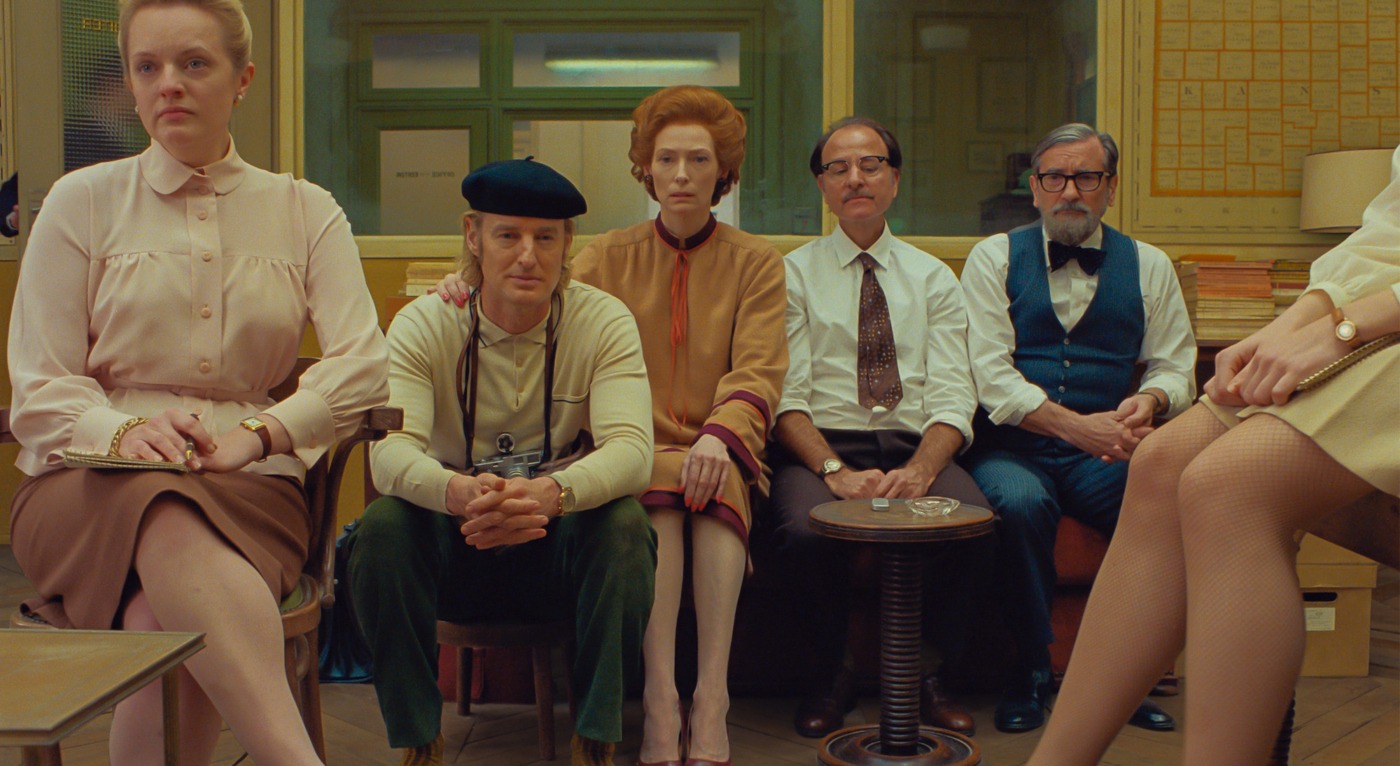‘The French Dispatch’ is a damn good time
It feels almost too meta to be writing a journalistic piece on a film whose structure, narrative and thematic occupation are dictated by journalism, but I shall embrace the spirit of Bill Murray’s character and do my best to make this article sound like I “wrote it that way on purpose.”
In his newest project, The French Dispatch, Wes Anderson takes on the tricky task of the anthology film. Three main stories break up the narrative with the structure resembling the layout of the newest memorial edition of ‘The French Dispatch’ newspaper. The anthology film is not always easy to master, but Anderson once again provides innovative and creative storytelling to his structure and narrative layout.
Whilst on my first watch I did feel as though the film slightly lost momentum during the third story, perhaps because it was the most complicated or hard to follow, on a second watch I felt the pace held firm. In fact, practically everything about it was more enjoyable on a second watch: this is the kind of film you will need to see again and again.
His idiosyncratic style is in full swing here, to the point where it almost feels aggressive
Anderson is, in my biased opinion, one of the most successful auteurs of our time, and The French Dispatch displays this perfectly. His idiosyncratic style is in full swing here, to the point where it almost feels aggressive. The colours, the symmetry, the compositions, the fast-paced dialogue, the cheerful score – it was almost too much for my Anderson obsessed self to deal with. I can only take so much serotonin, Wes!
The film’s distinct and consistent style has led some to argue that it’s all style and no substance. Personally, I feel that this view of the film comes from the script’s emotional detachment, rather than its supposed lack of material. The world of The French Dispatch is shown from an ironic narrative distance and the characters, whilst lovable and funny, are unlikely to make you cry.
Set in the backdrop of a fictional France’s complicated political climate, Anderson has every
opportunity to be political, and yet he refuses to be. He shifts focus from protest, incarceration, war, and revolution to art, industry, food, and love. In the first story, the police system and the hierarchy of officer and prisoner is replaced with artistic expression and romance.
In the second, we do not hear the political views of the teenage subjects’ revolutionised minds. In fact, we don’t hear any of the manifesto crafted by Timothée Chalamet’s character at all; every time someone begins to read from it, McDormand’s narration cuts in, shifting us to a journalistic perspective. When an escape plan is being constructed and described in the third story, priority is given to the detailing of the food being served at the same time.
Thanks to its satirical approach, it never feels arrogant in its artistic orientation
The French Dispatch replaces politics with art and the relationship between a story and its journalistic account. Thanks to its satirical approach, it never feels arrogant in its artistic orientation. The newspaper writers are exaggerated caricatures and the arrogance and pretension within the industries of art and journalism are highlighted in humorous ways. This lack of engagement in political commentary could be viewed as a point of criticism, but to this I say that anyone who expects a Wes Anderson film to provide woke commentary should not waste their money on the cinema ticket.
Instead, The French Dispatch fulfils the aim of providing audiences with a good time. You can really feel the fun in the humour, the playfulness of the hyperbolic fast-paced language delivered in perfect deadpan, the shot compositions, and the creative way that the narrative unfolds. The acting performances and cameos add another layer of fun, with Adrien Brody alone making the film in his neurotic art dealer role. Mix all these elements together and it makes for a very enjoyable watch.
If you don’t like Wes Anderson, you are unlikely to warm to The French Dispatch, as it is perhaps his most stylistically indulgent and narratively creative film yet. However, if, like me, you are a fan of all or any of his previous works then go and watch it immediately and indulge in the entertaining world he creates.

Comments